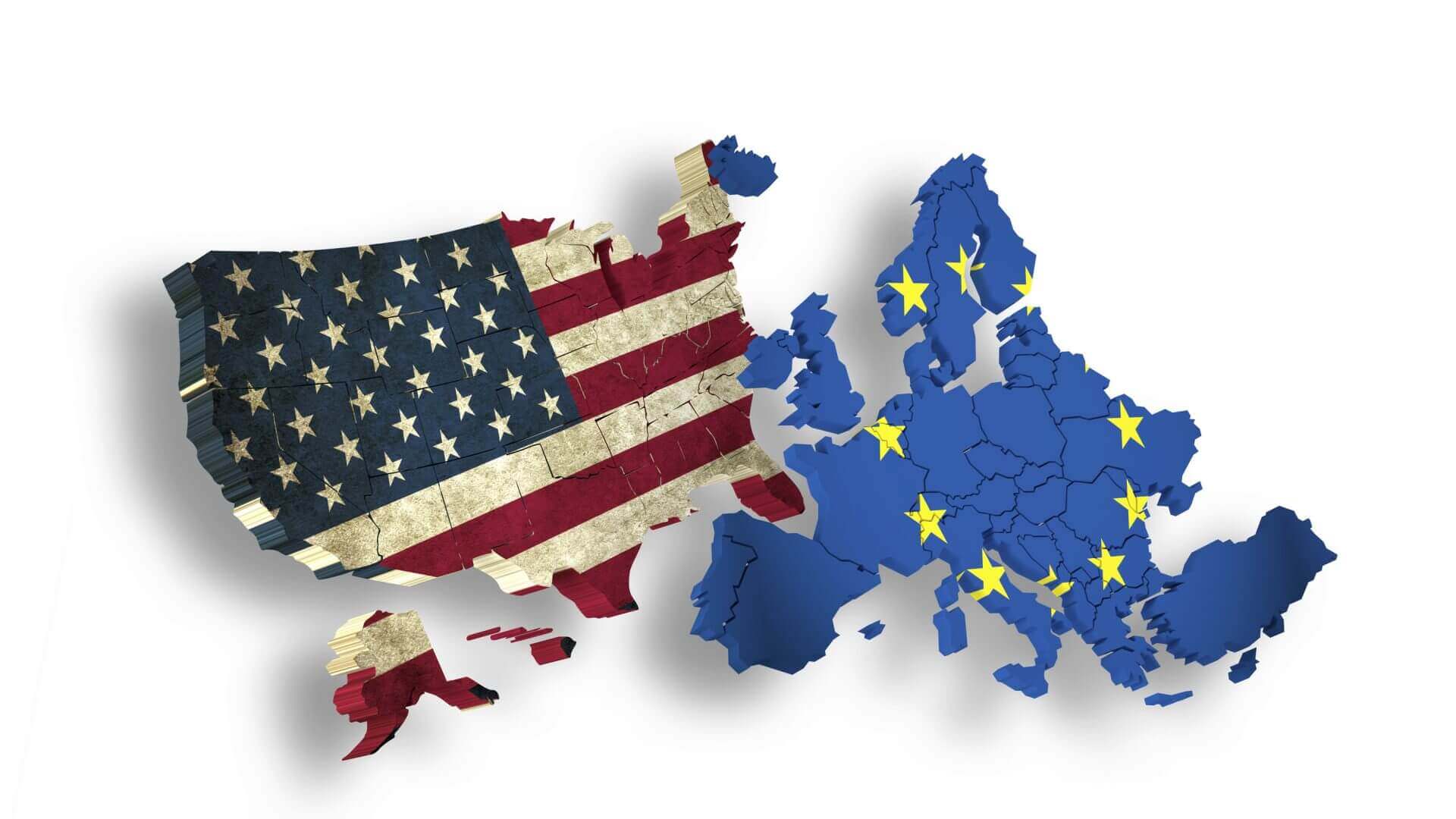Europe Divided Over Crypto Threat as Trump Policies Raise Concerns
23.04.2025 11:00 2 min. read Alexander Stefanov
European financial authorities are currently divided over how much of a threat Donald Trump’s crypto-friendly stance poses to the Eurozone.
The European Central Bank (ECB) has sounded the alarm, arguing that Trump’s policies could disrupt the EU’s financial landscape by encouraging a surge in dollar-backed digital currencies. In their view, this could lead to cross-border financial instability and undermine Europe’s monetary independence.
On the other side of the debate, the European Commission has brushed off the ECB’s warnings, saying that the existing regulatory framework—particularly the Markets in Crypto-Assets (MiCA) legislation introduced in 2023—is robust enough to manage any fallout. The Commission even accused the central bank of misinterpreting the rules, fueling a broader institutional clash.
The core disagreement revolves around the rise of stablecoins tied to the U.S. dollar, which the ECB believes could erode the euro’s dominance. They argue that stricter controls are needed to prevent foreign-backed crypto assets from gaining a foothold in Europe. In contrast, the Commission maintains that no major regulatory overhaul is necessary.
This debate came to a head during an April 14 meeting where EU leaders reviewed the potential consequences of growing American crypto influence. While the ECB pushed for urgent policy updates, most member states sided with the Commission, effectively downplaying the concerns.
Despite this, the ECB’s concerns haven’t come from nowhere. The institution has long advocated for a balanced evolution of both traditional finance and digital innovation within the EU. In fact, the ECB is already moving ahead with plans for a digital euro, a project aimed at preserving the region’s economic autonomy in a world increasingly influenced by U.S.-based digital currencies.
-
1
Robert Kiyosaki Predicts When The Price of Silver Will Explode
28.06.2025 16:30 2 min. read -
2
Trump Targets Powell as Fed Holds Rates: Who Could Replace Him?
27.06.2025 9:00 2 min. read -
3
U.S. PCE Inflation Rises for First Time Since February, Fed Rate Cut Likely Delayed
27.06.2025 18:00 1 min. read -
4
Key U.S. Economic Events to Watch Next Week
06.07.2025 19:00 2 min. read -
5
US Inflation Heats Up in June, Fueling Uncertainty Around Fed Cuts
15.07.2025 16:15 2 min. read
US Inflation Heats Up in June, Fueling Uncertainty Around Fed Cuts
U.S. inflation accelerated in June, dealing a potential setback to expectations of imminent Federal Reserve rate cuts.
Gold Beats U.S. Stock Market Over 25 Years, Even With Dividends Included
In a surprising long-term performance shift, gold has officially outpaced the U.S. stock market over the past 25 years—dividends included.
U.S. Announces Sweeping New Tariffs on 30+ Countries
The United States has rolled out a broad set of new import tariffs this week, targeting over 30 countries and economic blocs in a sharp escalation of its trade protection measures, according to list from WatcherGuru.
Key U.S. Economic Events to Watch Next Week
After a week of record-setting gains in U.S. markets, investors are shifting focus to a quieter yet crucial stretch of macroeconomic developments.
-
1
Robert Kiyosaki Predicts When The Price of Silver Will Explode
28.06.2025 16:30 2 min. read -
2
Trump Targets Powell as Fed Holds Rates: Who Could Replace Him?
27.06.2025 9:00 2 min. read -
3
U.S. PCE Inflation Rises for First Time Since February, Fed Rate Cut Likely Delayed
27.06.2025 18:00 1 min. read -
4
Key U.S. Economic Events to Watch Next Week
06.07.2025 19:00 2 min. read -
5
US Inflation Heats Up in June, Fueling Uncertainty Around Fed Cuts
15.07.2025 16:15 2 min. read


